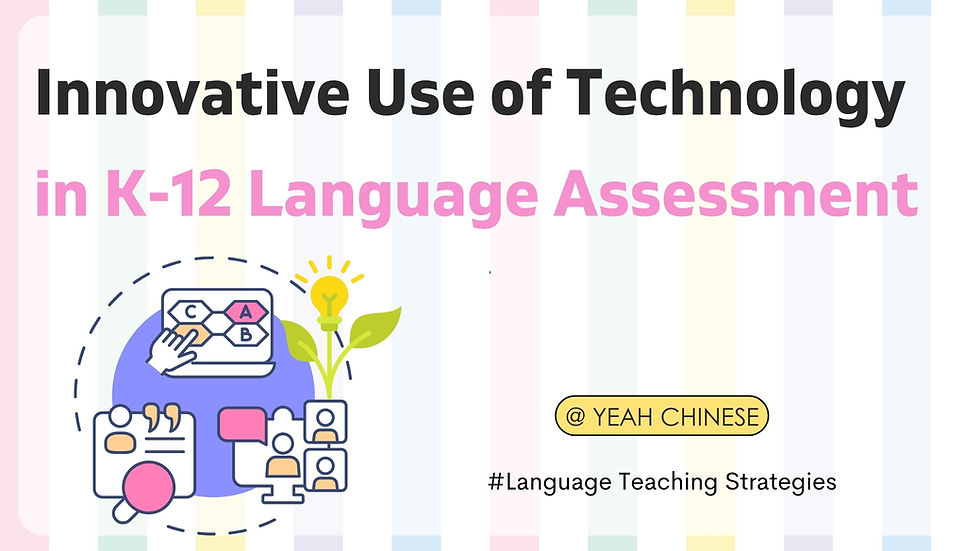Language Teaching Strategies (#2) - Must-Have Elements Of An Effective Activity
- YEAH! CHINESE!

- Oct 9, 2019
- 2 min read
Updated: Jan 25, 2025
As language teachers, sometimes it took a long time for us to examine whether a learning activity worked effectively or to what extent it was effective. Especially when a task has been conducted for a longer period of time, and it can be quite frustrating when we find out it wasn't really working or students weren't achieving the learning outcomes. As the learners are so different in so many ways, their learning styles, their interest, their strengths and weaknesses, their prior-learning experiences, the way their brains work, etc; the below essential elements are prerequisite in planning and designing learning activities that are likely to result in achieving the intended learning outcomes.

1. Learning Goals
Make learning goals clear to students. This helps students understand what they need to address/achieve in their learning.
2. Success Criteria
Explain what successful achievement of the learning goals looks like. This helps students understand what is expected in conducting their task and recognise whether they have been successful in their learning. With proper guidance, success criteria promotes students' reflection and self-evaluation of own progress and work.
3. Work Samples
Display a worked example that is aligned with the success criteria. Depending on students' levels, sometimes it's worthy of showing both exemplary samples of work and graded work samples at different levels of achievement. Discussing how each work sample addresses the success criteria/marking criteria with students can help them gain a clear understanding of the success criteria/marking criteria.
4. Worked Example
Demonstrate step-by-step how to perform a task. The task/project can be broken down into a collection of small tasks if necessary.
5. Differentiation & Scaffolding
Make sure learning activities are differentiated and challenging for students at their levels. Scaffoldings should be provided to students to help them achieve their own learning goals.
Reference
AITSL Learning Intentions and Success Criteria Strategy, retrieved from https://www.aitsl.edu.au/
At YEAH CHINESE, we’re dedicated to helping you bring dynamic, interactive, and effective language lessons to your classroom. Want more creative ideas, resources, and community support? Subscribe to our newsletter today to join a growing community of language teachers and get access to even more tools, tips, and activities designed to make learning exciting for your students. ❤️



Comments